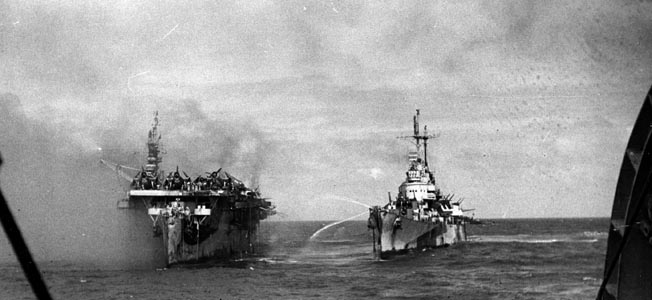
Mark E. Stille’s ‘Leyte Gulf’
By Christopher MiskimonIn addition to being history’s biggest naval battle, Leyte Gulf was also the last battle to take place between fleets. Read more

In addition to being history’s biggest naval battle, Leyte Gulf was also the last battle to take place between fleets. Read more
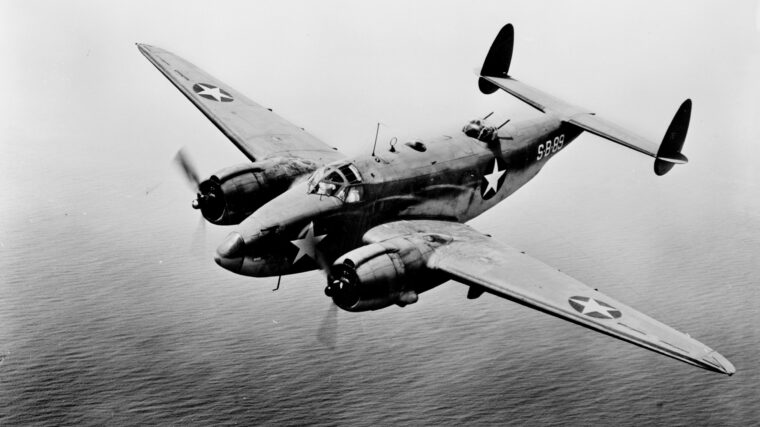
At 1 p.m. on August 7, 1942, Lieutenant (jg) Gordon Firebaugh took off from the carrier USS Enterprise leading six Grumman F4F Wildcat fighters. Read more
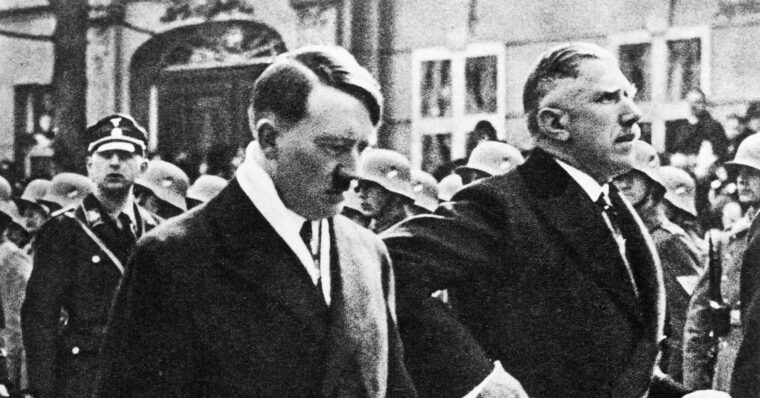
By April 1945, Hitler suffered from several mental and physical ailments. These included an advanced case of Parkinson’s Disease, heart disease, and gastrointestinal disorders along with other minor illnesses. Read more
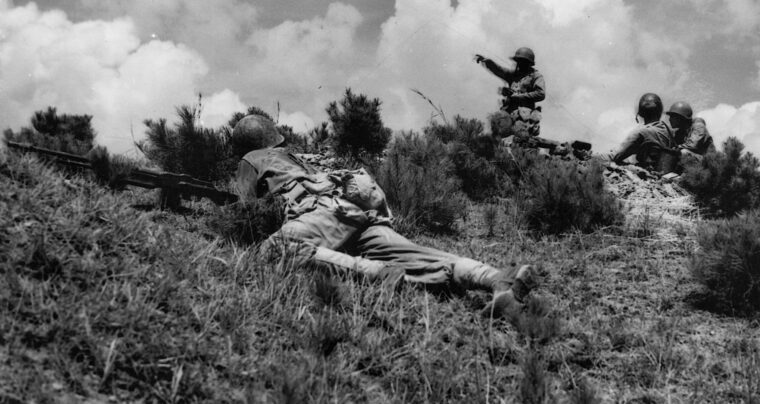
The 1st Marine Division was on the move toward the Yalu River. With any luck, if the weather cooperated, the Korean War, or rather, the United Nations police action in Korea, would be over in weeks. Read more
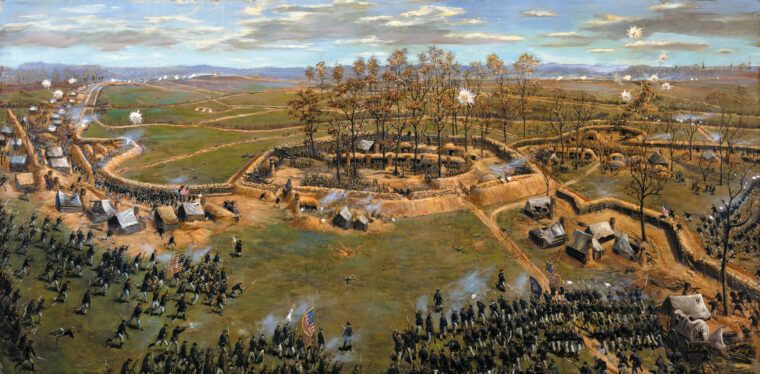
By the early spring of 1865, the Southern Confederacy was on the cusp of extinction. In every theater of the four-year-old Civil War, the gray-clad Rebels were getting the worst of things. Read more
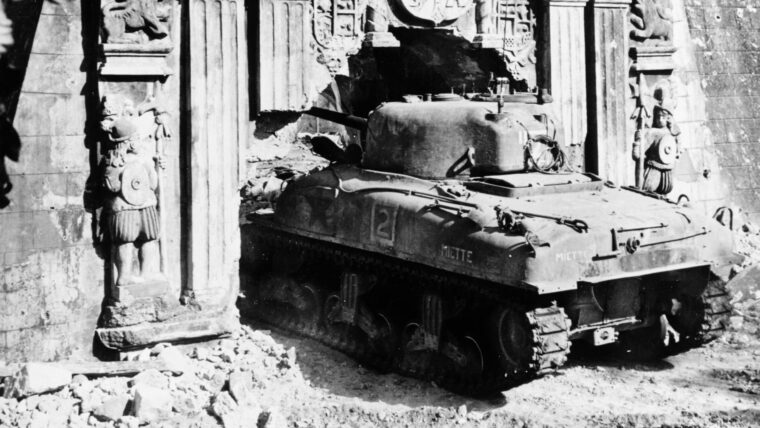
The “Pearl of the Orient” had lost all of its luster by January 1945.
Three years of brutal Japanese occupation had left many of Manila’s 800,000 native residents humiliated, tortured, or dead. Read more
Welcome to WWII History’s new format and publishing frequency—you’ll now find more pages, and more stories, in each issue. Read more
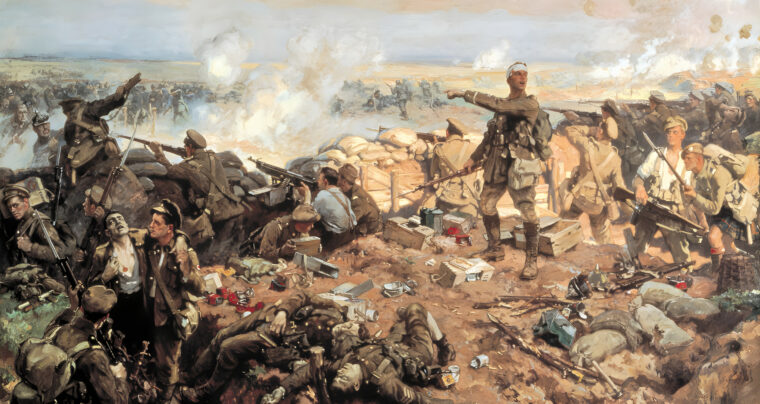
Despite the incessant German shelling that had been hammering away at the French lines to their immediate left near the rubble-strewn city of Ypres in northwestern Belgium, the largely untested soldiers of the Canadian 1st Division found the early spring day of April 22, 1915, surprisingly warm and pleasant. Read more
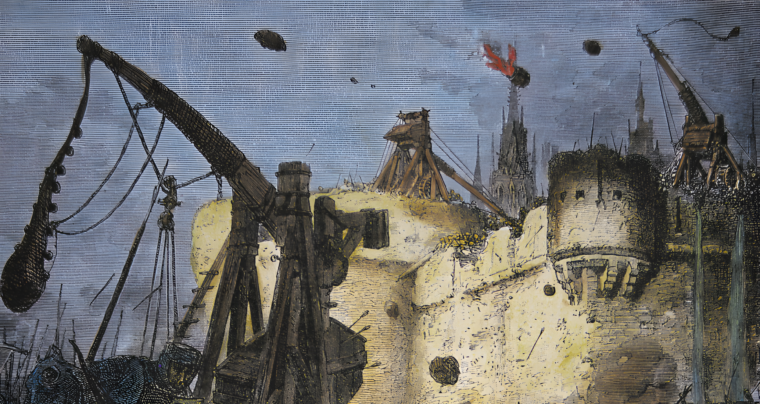
It was the spring of 1097 and the Turks guarding the walls of Nicaea were in a confident mood. Read more
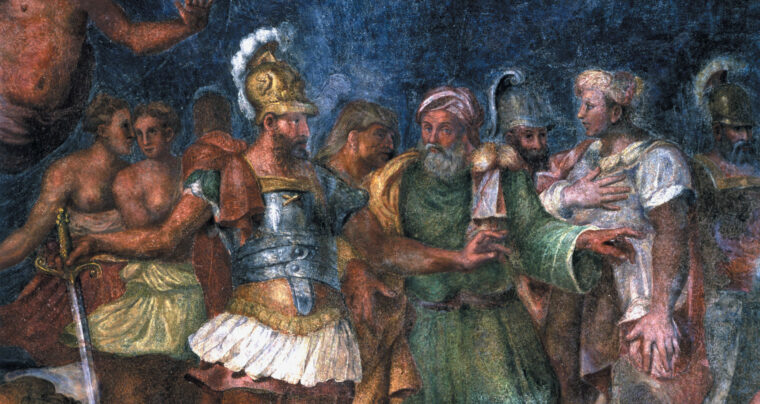
It was the autumn of 333 bc and Alexander the Great stood triumphant on the battlefield of Issus. Read more
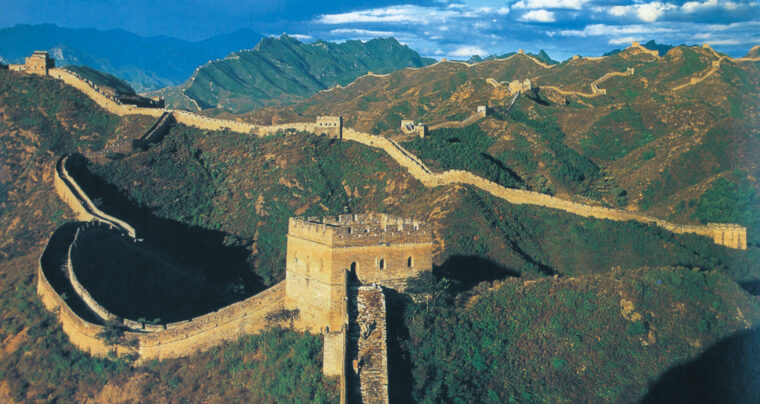
When rebel peasants under a charismatic army deserter named Liu Pang descended on the capital city of Hsien Yang in 206 bc, they did so under the considerable shadow of the Ch’in dynasty’s former ruler, Shih Huang-ti. Read more
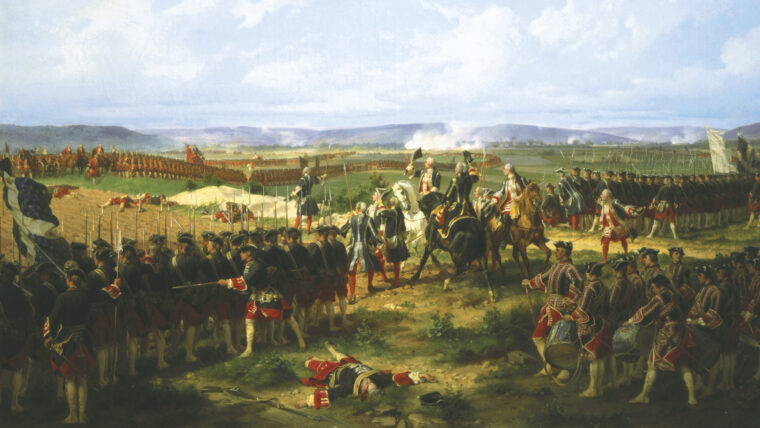
In the Age of Reason, even wars were fought reasonably. Well-ordered marches, carefully dressed ranks of impeccably turned-out soldiers, and elaborately sketched battle plans were the order of the day in the so-called “lace wars” of the mid-18th century. Read more
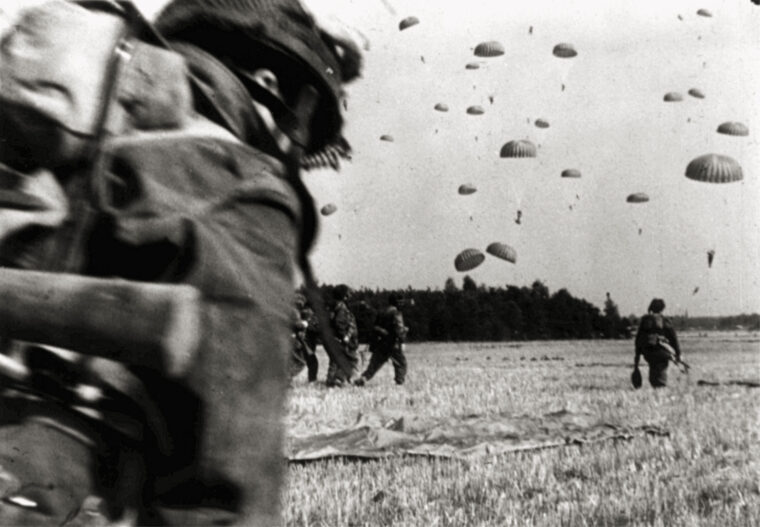
Two men were seated on either side of a paper-strewn table inside an office of MI5, the British intelligence service, in the Royal Victoria Patriotic School at Clapham, London, shortly after the fall of France in the spring of 1940. Read more
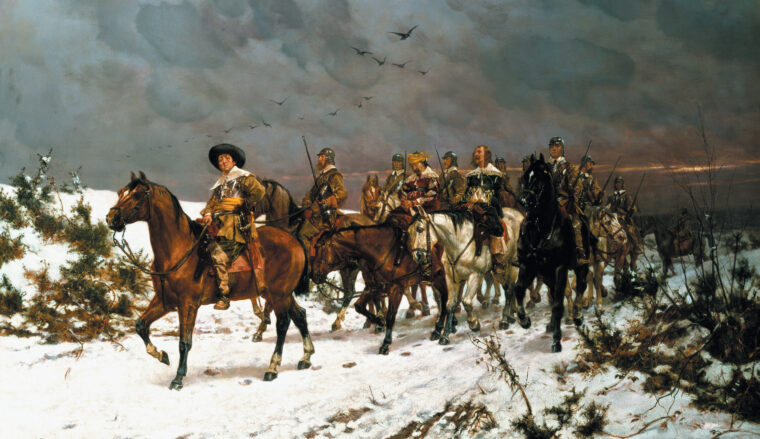
By the spring of 1645, the open warfare between King Charles I and his rebellious Parliament had dragged on for nearly three years, with no apparent end in sight. Read more
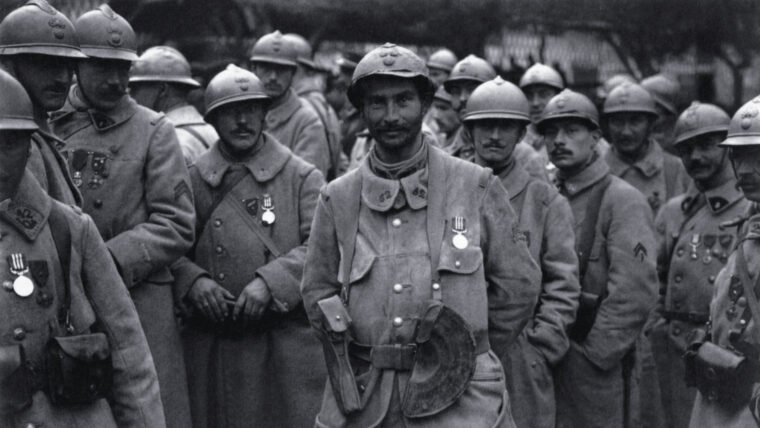
Thick metal helmets were used since ancient times to offer protection to their wearers in combat and are among the earliest forms of armor. Read more
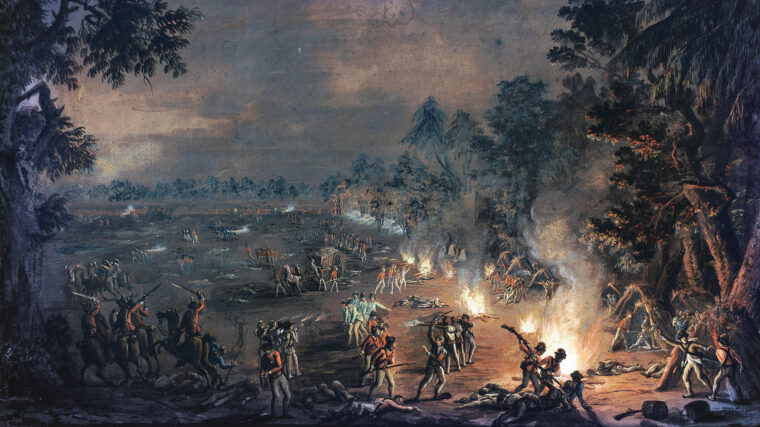
On a gloomy Friday morning, September 26, 1777, an advance party of the British Army marched into Philadelphia to take possession of the city. Read more
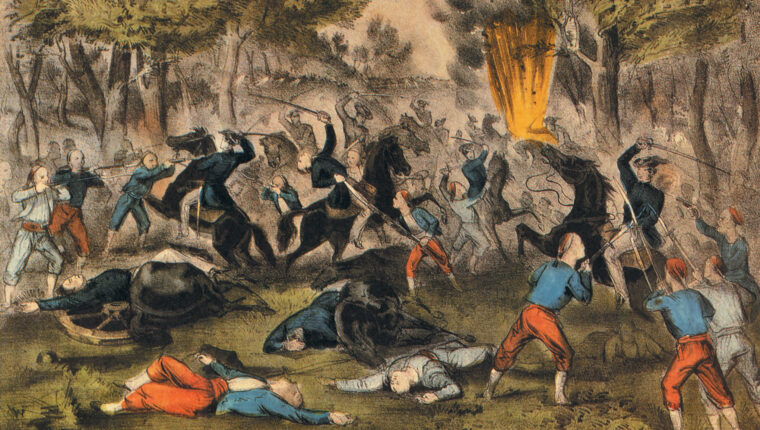
“But for you, there would have been no Battle of Bull Run.” When Confederate President Jefferson Davis made that blanket statement in the summer of 1862, he was not addressing Pierre G.T. Read more
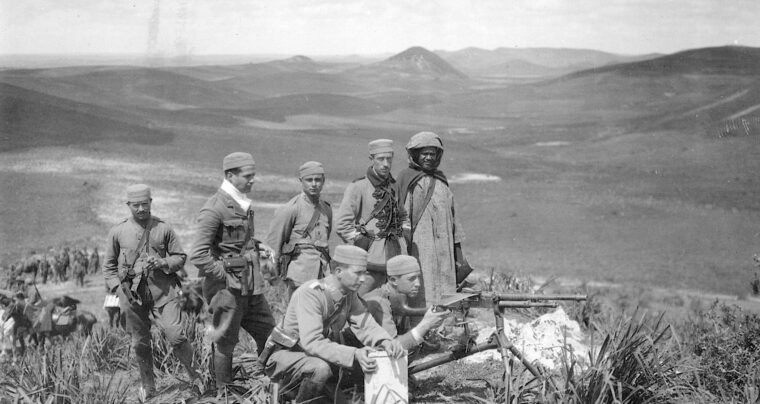
Spanish Legionaries charged into battle crying, “Long Live Death.” They sang of being “the Bridegrooms of Death” and proved they meant it with over 10,000 killed and 35,000 wounded. Read more
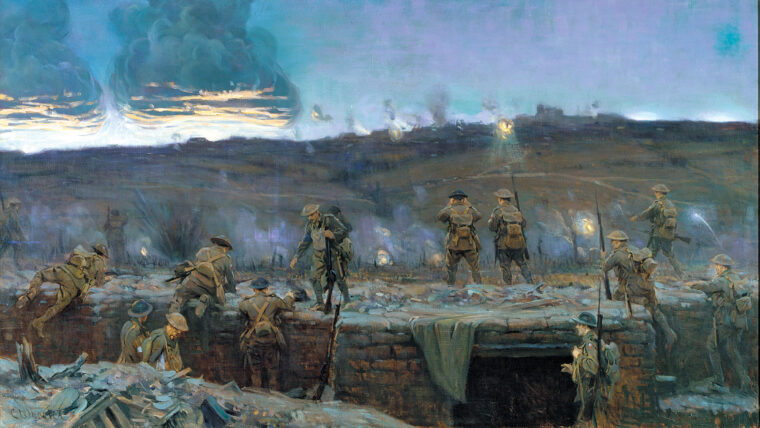
He had the distinction of being the first Commonwealth soldier to receive the Victoria Cross for valor in World War I, and many observers felt that Australian-born Albert Jacka should have earned at least three of Great Britain’s highest award. Read more
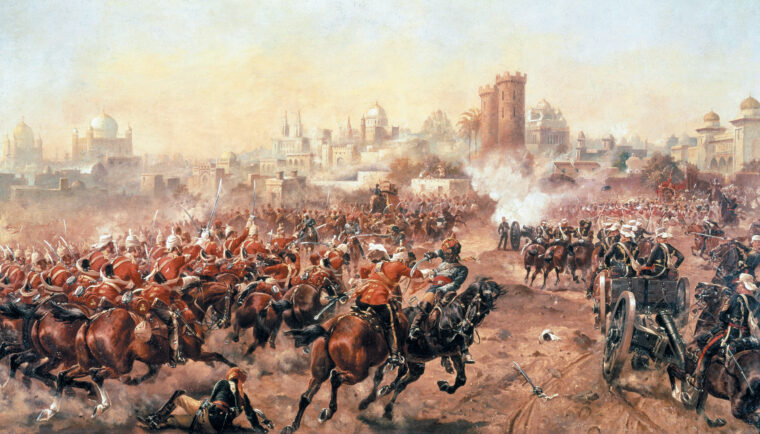
Three months before the Indian Rebellion of 1857, British East India Company officials manning outstations in the northwestern provinces of India began to notice the revival of a strange and disturbing local custom. Read more